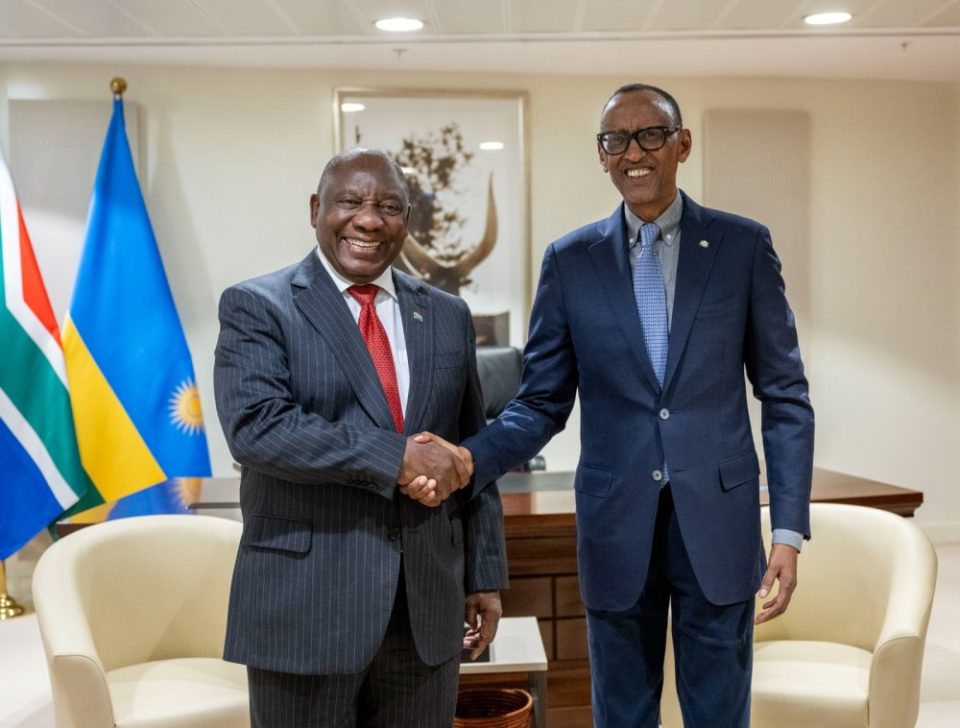South Africa President Cyril Ramaphosa has pledged his commitment to rekindling bilateral ties with Rwanda.
Speaking during his recent visit to Rwanda for the 30th commemoration of the 1994 Genocide against the Tutsi, Ramaphosa admitted that the relationship between the two countries has been facing challenges.
He, however, indicated that since he came to power, he has been working to mend the relations.
According to the South African Head of State, some of the “wrinkles” include Rwandans needing to apply for visas to visit South Africa, something he said he had agreed with his Rwandan counterpart, Paul Kagame, to resolve “as soon as possible”.
“I had an extensive discussion with him about how we can refashion our relationship on a bilateral basis on issues to do with visa and travel. We believe that we are definitely going to get on the way of rekindling and rebuilding that relationship,” Ramaphosa stated.
“I say rekindling because it is a relationship that is in existence, like relationships between countries, sometimes they face challenges, they wrinkle up and those wrinkles will be straightened up.”
Ramaphosa also noted that the crisis in the eastern part of the Democratic Republic of Congo (DRC) and the war with the M23 rebel group, which DRC accuses Rwanda of backing, featured prominently in their discussions.
The two leaders agreed that a political solution would be much beneficial in ending the tension between Rwanda and DRC rather than military action.
“We both agreed that peace was an essential component fostering the development of this part of the continent and that in doing so we should bring the conflicts that are happening in the eastern part of the DRC to an end,” he said.
“There are a number of forces that operate in this area (North Kivu) and we agreed that a peaceful political solution is the best option to any military action.”
Ramaphosa also noted that he had involved former President Thabo Mbeki in the discussions and hoped for a resolution of the dispute.
“All of us, in our discussions, expressed a deep yearning for a peaceful political solution to the challenges being faced [in the DRC]. I leave Rwanda with a renewed, bigger intention to find a solution that could lead to a political solution.”
Kagame, on his part said, the discussions were fruitful.
“I think we had a very good discussion, very good understanding of the situation and maybe the best ways we can work together to resolve that,” he told the media on Monday.
Ramaphosa had attracted criticism over his decision to deploy more than 2,000 troops to the Eastern Congo as part of SADC mission to fight alongside a Congolese government-led coalition. This coalition includes the FDLR, composed of Interahamwe, who are remnants of the perpetrators of the 1994 Genocide against the Tutsi in Rwanda.
Rwanda protested against the South Africa-led mission and urged the United Nations Security Council not to support the troops logistically or technically, arguing that do so could spark a regional war.


